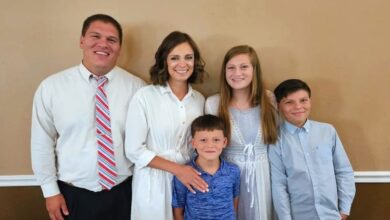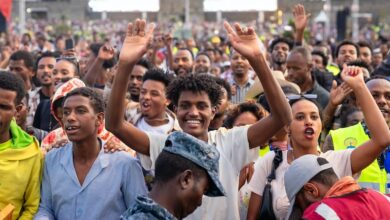President secures return of the remains of 55 American soldiers from North Korea
PYEONGTAEK, South Korea — In early June, Democrats and the media scoffed at the idea that a Trump summit with North Korean dictator Kim Jong Un would produce any tangible results. This morning, family members and descendants of U.S. soldiers killed in action in North Korea are praising the president for promises kept. A U.S. Air Force plane carrying the remains of U.S. troops killed during the Korean War some 65 years ago arrived in Osan Air Base in South Korea on Friday morning.
Troops from various nations serving in South Korea under the United Nations Command presented an honor guard before the plane, as white-gloved troops in different uniforms descended the ramp of the U.S. Air Force C-17, carefully holding cases wrapped in the UN flag.
The cases were transferred to silver minivans waiting on the runway.
The C-17 had left Osan Air Base earlier Friday to fly to the city of Wonsan, North Korea, before completing the return journey, the White House said in a statement.
In Wonsan, the North Koreans turned over what they say are an initial 55 cases holding remains, a U.S. official told CNN.
North Korean officials handed over the probable remains on the anniversary of the signing of the armistice that ended the conflict, which claimed the lives of tens of thousands of Americans, over 600,000 Chinese, 600,000 Korean soldiers, and over a million Korean civilians.
It may take months of detailed DNA analysis to determine how many American service members can be identified.
U.S. President Donald Trump described the return of the remains as a “great moment for so many families,” and thanked North Korean leader Kim Jong Un.
Each case of remains was to be opened and photographed inside North Korea, before being transferred. U.S. forensic specialists are to conduct a more in-depth assessment of the remains as well as an examination of any military uniform, identification tags or documentation at Osan Air Base. That review could take up to five days.
“It was a successful mission following extensive coordination,” said United Nations Command (UNC), and United States Forces Korea (USFK) Commander General Vincent K. Brooks. “Now, we will prepare to honor our fallen before they continue on their journey home.”
General Brooks will host a full honors ceremony, on Wednesday, August 1, before the remains are flown to a U.S. military laboratory in Hawaii for DNA analysis.
The South Koreans welcomed the move from North Korea as a “humanitarian measure that can help heal the pain of the Korean War veterans who were not able to return home for more than half a century and their bereaved families.”
“The South Korean government will continue to consult with the North so that (the remains of) our soldiers killed during the Korean War can return to their families as soon as possible through a joint search for remains,” South Korea’s Foreign Ministry said in a statement.
Summit agreement
The return of the remains was one commitment North Korean leader Kim Jong Un agreed to when he met with U.S. President Donald Trump in Singapore on June 12.
With the return of the remains, the onus shifts onto Trump. The North Koreans could now argue that they have begun to fulfill their part of the bargain struck in Singapore.
“Today, the Chairman is fulfilling part of the commitment he made to the President to return our fallen American service members,” the White House statement said. “We are encouraged by North Korea’s actions and the momentum for positive change.”
“This repatriation is an action based on the agreement between the leaders at the June 12 North Korea-U.S. summit, (we) assess that this is a meaningful step that can contribute to the building of trust between the two sides,” the South Korean Foreign Ministry. “(We) hope the efforts of the involved parties to promote peace and stability on the Korean Peninsula will be further accelerated.”
Korea was divided into two parts under Japanese rule before and during World War II. After the Japanese surrender, the Soviet Union occupied the area north of the 38th parallel and the United States occupied the area south until 1948.
Of the nearly 8,000 Americans who were killed in battle, missing or captured, more than 5,000 of them were believed to be in North Korea. Since 1990, North Korea has repatriated the remains of 340 U.S. troops.






